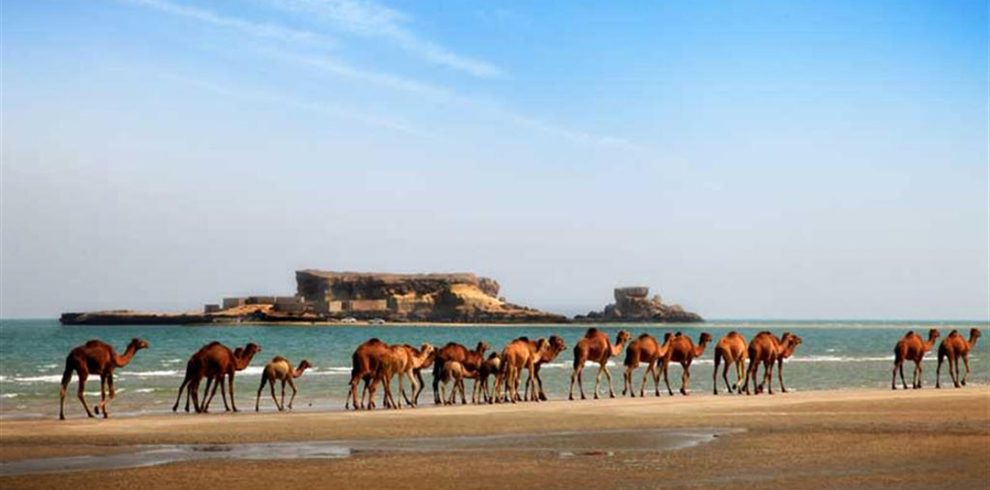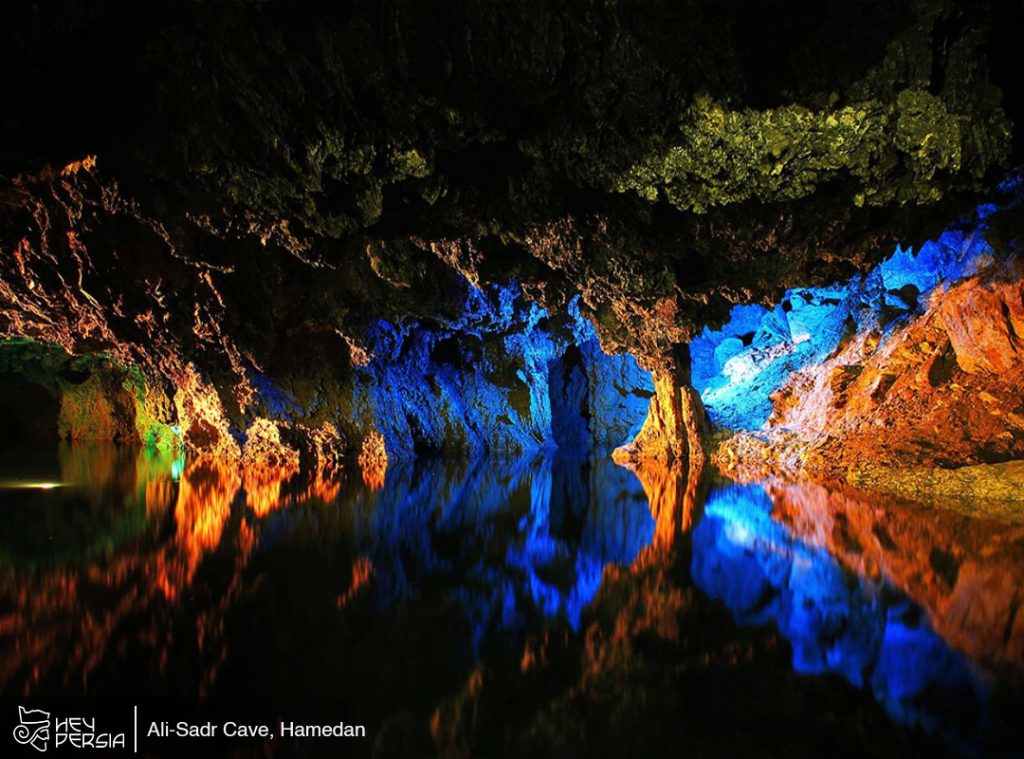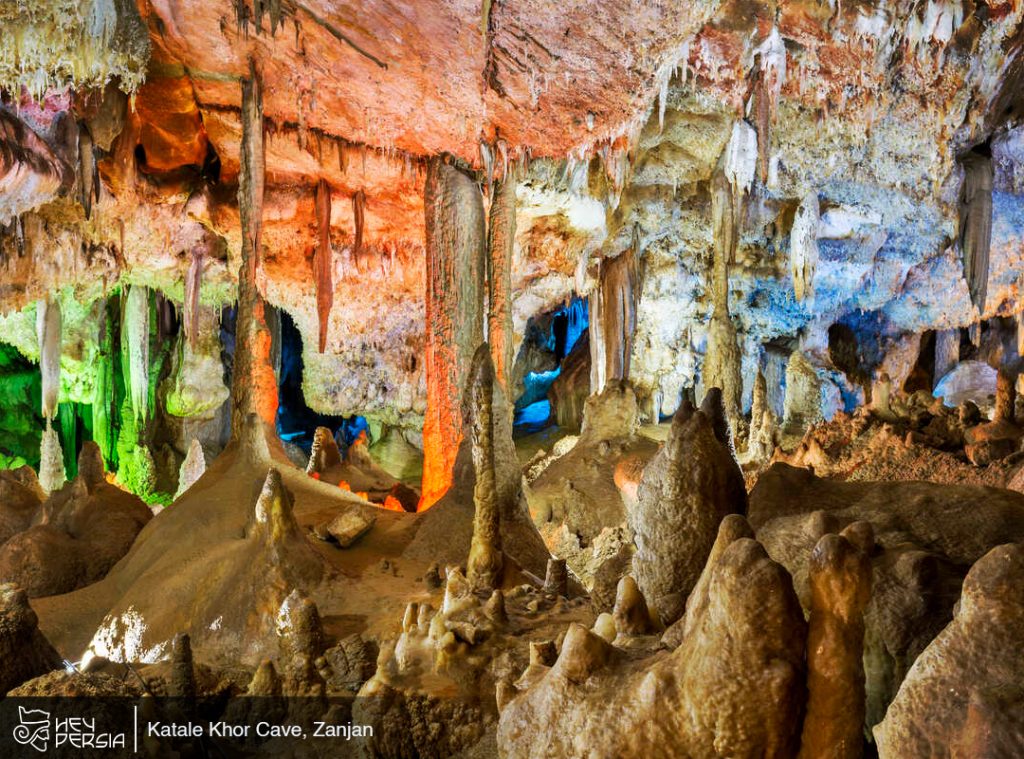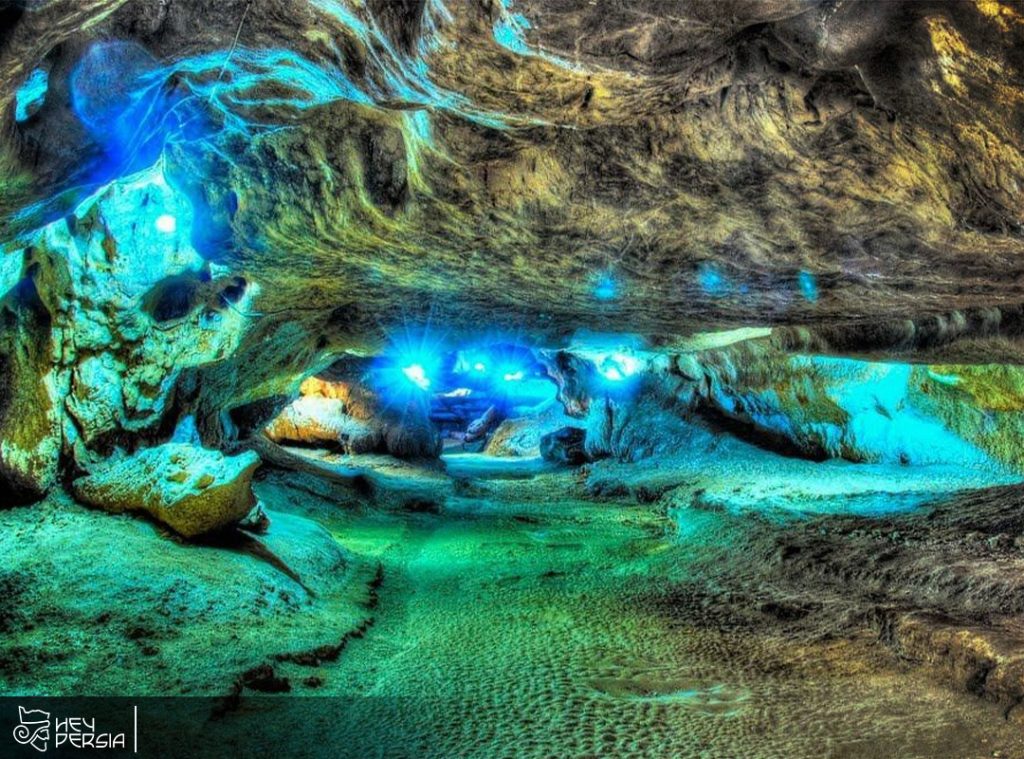The Namakdan Salt Cave in Iran, is a natural wonder in on Qeshm Island, which is part of Iran’s Hormozgan Province. This cave is famous for its awe-inspiring salt formations, offering a unique underground landscape that captivates tourists, geology enthusiasts, and adventurers. In this overview, we will delve into the features, geological significance, and visitor experience of the Namakdan Salt Cave. Learn more at Hey Persia.
Formation of Namakdan Salt Cave in Iran
Namakdan Salt Cave is a prime example of a salt cave, a unique type of cave formed primarily by the dissolution of salt deposits. These caves often develop in areas with extensive underground salt layers. In the case of Namakdan, the salt is primarily halite, or rock salt, which is soluble in water.
Underground Salt Layers of Namakdan Salt Cave in Iran
The formation of the Namakdan Salt Cave can be attributed to the extensive underground salt layers on Qeshm Island. These layers were in millions of years ago as a result of geological processes. Over time, water percolating through the layers has dissolved the salt, creating underground voids and passages.
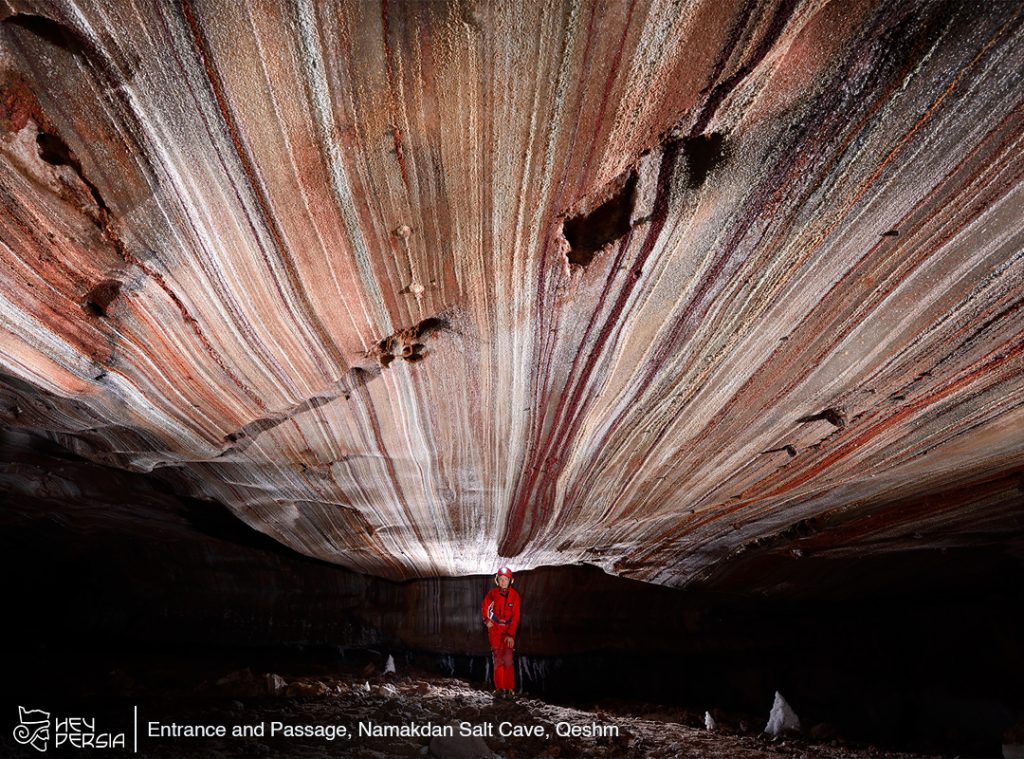
Salt Crystal Structures
What makes Namakdan particularly enchanting are the stunning salt crystal formations that adorn its interior. These crystals can take various shapes, including needles, blades, and translucent curtains, creating an otherworldly atmosphere within the cave.
Entrance and Passage
The entrance to the Namakdan Salt Cave leads visitors into a narrow, dimly lit passage that gradually opens up into the cave’s main chamber. The passage itself is adorned with salt crystals, offering a glimpse of the cave’s unique beauty.
Main Chamber in Namakdan Salt Cave in Iran
As visitors proceed through the passage, they emerge into the main chamber of the cave. This cavernous space is replete with spectacular salt formations, which can be explored and admired. The sheer size and diversity of the crystal structures make this chamber a sight to behold.
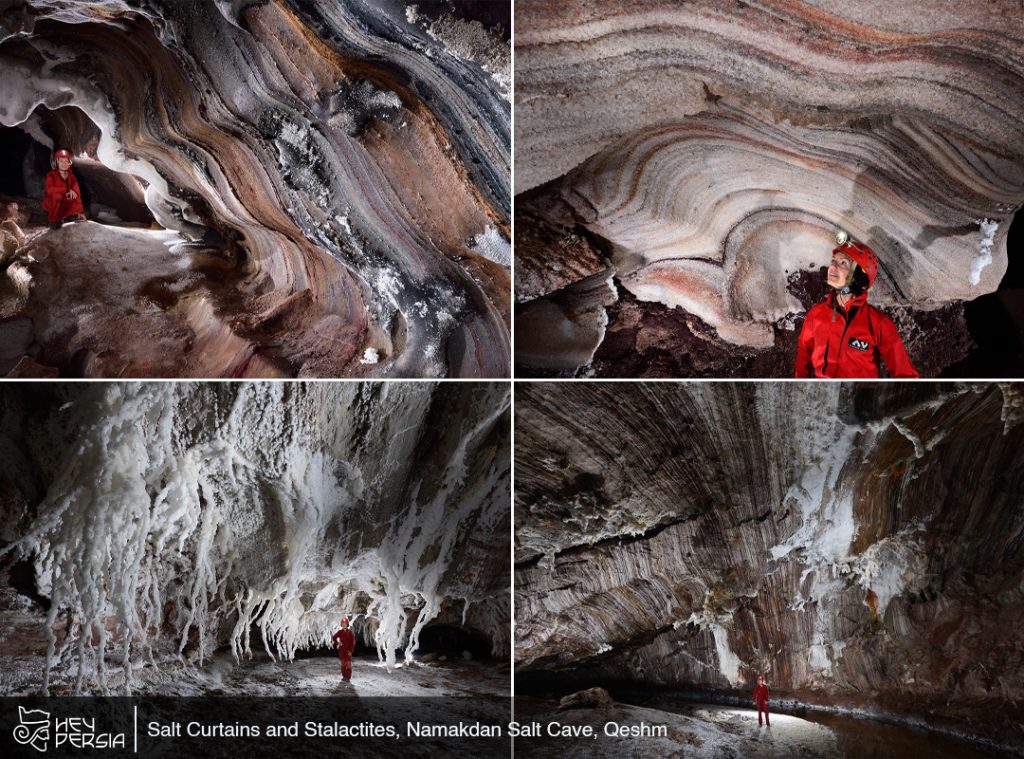
Salt Curtains and Stalactites
One of the standout features of Namakdan is the presence of salt curtains and stalactites. These formations result from the slow dripping of highly saline water, which leaves behind layers of salt that accumulate over time. The translucent quality of the salt curtains adds to the cave’s ethereal ambiance.
Salt Pools and Reflective Surfaces
Salt pools within the cave create reflective surfaces that mirror the intricate salt formations above. This effect enhances the visual appeal of the cave, making it a photographer’s paradise.
Visitor Experience
Visitors to the Namakdan Salt Cave typically join guided tours to explore this unique underground wonder. Knowledgeable guides provide insights into the geological processes and the formation of the salt cave, enriching the overall experience.
Unique Photography Opportunities
The cave’s surreal salt formations, combined with the play of light, create exceptional photography opportunities. Many visitors are to the cave for its photogenic qualities, and capturing its beauty is a popular activity.
Geological Interest
Geology enthusiasts are particularly loving to the Namakdan Salt Cave because it offers a remarkable opportunity to witness the natural processes of salt dissolution and the formation of underground voids.
Conservation and Preservation
Preserving the fragile salt formations within the cave is of paramount importance. Visitors are typically advised to avoid touching or damaging the salt crystals, ensuring that this natural wonder remains intact for future generations.
Namakdan Salt Cave in Iran
The Namakdan Salt Cave in Iran’s Qeshm Island is a geological masterpiece and a testament to the beauty of nature’s creations. Its unique salt formations, underground chambers, and photogenic qualities make it a must-visit destination for those with an interest in geology and a sense of adventure. This salt cave is a living testament to the extraordinary geological processes that have shaped the Earth over millions of years, and it continues to captivate visitors with its breathtaking beauty and natural wonder.

